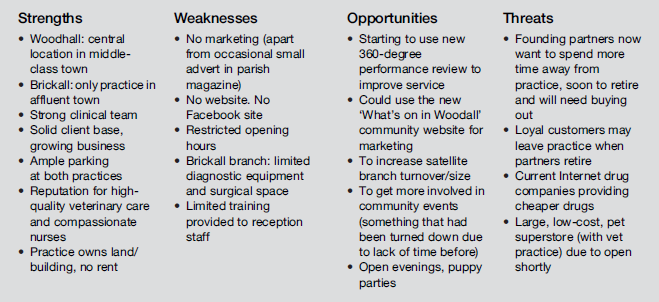10 After reading this case study, students will be able to: • Appreciate some of the practical challenges associated with making the transition from ‘student’ to ‘veterinary practitioner’. • Recognize the form and function of a typical veterinary practice and some of the commercial demands they may face. • Understand the need to communicate with and take advice from more experienced colleagues within the veterinary practice team. • Draw on business theories and concepts to suggest what new graduates might do to deal with some of the business challenges presented to Ellie in this case study. The practice was founded by Francis Rothwell and Leslie Higgs 34 years ago. Rothwell and Higgs had been friends for almost 40 years, having first met in the student bar when they were undergraduates in Glasgow. They were both straight-talking individuals and excellent vets. They were ‘immensely proud’ that many of their customers had been loyal to them for 30 years or more. The founding partners had seen the business grow since opening, with the turnover in the last financial year exceeding £750 000 and more than 12 000 patient visits. Julie Butters bought into the practice 5 years ago, having worked for them for 4 years previously. This had allowed the practice to develop with the opening of the Brickall branch, and expansion of the main surgery in Woodall (see Box 10.1).
Ellie Prior
starting out in practice
LEARNING OUTCOMES
Woodall Veterinary Partnership
Stay updated, free articles. Join our Telegram channel

Full access? Get Clinical Tree



